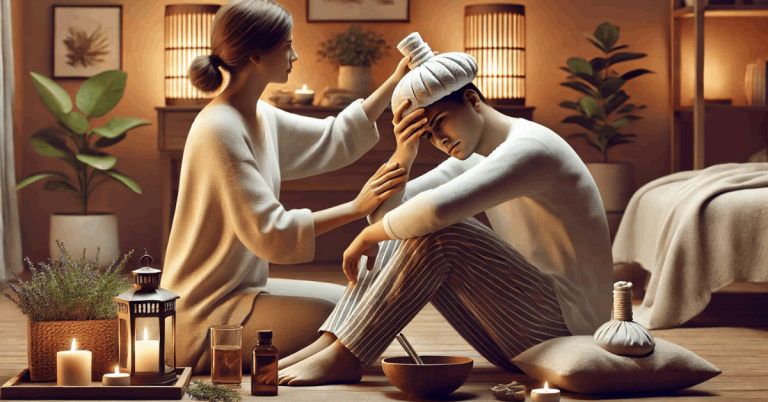Managing seasonal allergies is essential to staying comfortable and healthy all year. This article offers simple strategies to reduce symptoms and prevent flare-ups.
Learn how to identify triggers, choose effective treatments, and make small lifestyle changes for lasting relief. Take control of your allergies and enjoy each season without discomfort.
Understanding Seasonal Allergies
Seasonal allergies occur when your immune system reacts to environmental triggers like pollen, mold, or pet dander. These reactions can cause discomfort and vary depending on the time of year and your specific sensitivities.
What Causes Allergies?
Seasonal allergies are triggered when the immune system overreacts to harmless environmental substances. Here are the common causes of these reactions:
- Pollen from trees, grass, and weeds, especially during blooming seasons.
- Mold spores are often found in damp or humid areas.
- Pet dander from cats, dogs, or other animals.
- Dust mites are common indoors year-round.
Common Symptoms of Allergies
Allergic reactions can cause various symptoms that vary from mild to severe. These are the most frequent signs to watch for:
- Sneezing, often in quick bursts.
- Congestion or a stuffy nose.
- Itchy or watery eyes that can feel irritated.
- Runny nose or postnasal drip.
- Coughing triggered by irritation in the throat.
How Seasons and Weather Affect Allergies?
Weather plays a key role in allergy severity. Pollen levels are highest in spring and summer, while mold thrives in humid or rainy conditions.
Cold air in winter can also irritate airways, worsening symptoms for some individuals.
Identifying Your Triggers
Understanding what triggers your allergies is the first step toward relief. By tracking symptoms and seasonal changes, you can narrow down the culprits.
Tips for Pinpointing Allergens
Identifying specific allergens can make managing symptoms easier. Use these strategies:
- Keep an allergy diary to track symptoms and identify patterns.
- Note when symptoms worsen, such as at specific times of the day or certain activities.
- Try eliminating potential allergens in your environment one at a time.
- Consider allergy testing for precise identification.
Common Allergens by Season
Different allergens peak during specific times of the year. Here’s a breakdown:
- Spring: Tree pollen is the most common allergen.
- Summer: Grass pollen and mold spores increase.
- Fall: Weed pollen and mold from leaves are typical triggers.
- Winter: Indoor allergens like pet dander and dust mites are more prevalent.
Effective Medication Options
Medications can help control allergy symptoms effectively. Knowing your options ensures better symptom management.
Over-the-Counter Options
Over-the-counter medications provide quick relief for mild to moderate allergies. Common options include:
- Antihistamines to reduce sneezing, runny nose, and itching (e.g., loratadine, cetirizine).
- Decongestants to relieve nasal congestion (e.g., pseudoephedrine, oxymetazoline).
- Nasal sprays like saline rinses to clear irritants.
Prescription Medications for Severe Cases
For persistent or severe symptoms, prescription medications may be necessary. These may include:
- Corticosteroid nasal sprays for inflammation (e.g., fluticasone, mometasone).
- Leukotriene receptor antagonists to manage respiratory symptoms (e.g., montelukast).
- Epinephrine injections for emergency allergic reactions (e.g., severe anaphylaxis).
Consulting a Doctor
A doctor can recommend treatments tailored to your specific needs. Professional advice ensures safety when choosing medications. A healthcare provider can suggest effective long-term strategies for severe symptoms or ongoing discomfort.
Natural Remedies
Natural approaches can complement traditional treatments and provide additional relief. These methods focus on reducing symptoms and supporting overall health.
Herbal Teas, Honey, and Other Treatments
Simple remedies can ease symptoms and promote comfort. Consider these options:
- Herbal teas, like chamomile or peppermint, for soothing effects.
- Local honey to potentially desensitize pollen allergies.
- Essential oils like eucalyptus or peppermint for congestion relief.
Benefits of Saline Nasal Sprays or Rinses
Saline rinses help clear allergens and reduce nasal irritation. Here’s how they help:
- Flush out pollen, dust, and other irritants from nasal passages.
- Moisturize dry nasal tissues, providing comfort.
- Reduce congestion and improve airflow.
The Role of Diet and Supplements
A balanced diet supports the immune system and minimizes allergy symptoms. Antioxidant-rich foods like fruits and vegetables reduce inflammation. Supplements like vitamin C and quercetin may offer additional benefits.
Environmental Control Tips
Controlling your indoor and outdoor environment can significantly reduce allergen exposure. Minor adjustments can make a big difference in your comfort.
Keep Windows Closed During Peak Pollen Times
Reducing pollen entry into your home helps minimize symptoms. Tips include:
- Use air conditioning instead of opening windows.
- Check local pollen counts and keep windows shut during high levels.
- Close windows during windy days when pollen spreads more easily.
Use Air Purifiers to Reduce Allergens Indoors
Air purifiers help create a cleaner, breathing environment. Consider these benefits:
- Remove pollen, dust, and pet dander from the air.
- Choose purifiers with HEPA filters for the best results.
- Place them in frequently used rooms like bedrooms or living areas.
Clean Frequently and Use Hypoallergenic Bedding
Regular cleaning reduces indoor allergens and improves air quality. Follow these tips:
- Vacuum with HEPA filters to trap allergens effectively.
- Wash bedding in hot water to kill dust mites.
- Use hypoallergenic pillow covers and mattresses for added protection.
Lifestyle Changes for Allergy Prevention
Simple lifestyle adjustments can reduce exposure to allergens and improve daily comfort. These steps are easy to follow and effective in minimizing symptoms.
Showering and Changing Clothes After Outdoor Activities
Outdoor activities often lead to exposure to allergens like pollen. These tips help reduce exposure:
- Shower immediately after spending time outside to rinse off allergens.
- Change into clean clothes to avoid spreading pollen indoors.
- Keep outdoor gear, like shoes, outside or in a designated area.
Wearing Sunglasses to Protect Eyes from Pollen
Protecting your eyes can prevent irritation and reduce symptoms. Here’s how:
- Wear wraparound sunglasses to shield your eyes from pollen.
- Choose glasses with UV protection to guard against sunlight and allergens.
- Clean glasses regularly to remove accumulated allergens.
Minimizing Time Outdoors During High Pollen Levels
Limiting outdoor exposure during peak pollen times can help avoid severe reactions. Tips include:
- Check local pollen forecasts and plan activities accordingly.
- Stay indoors during early morning or windy days when pollen levels are high.
- Use apps or websites to track pollen counts in your area.
Long-Term Allergy Management
Long-term solutions are ideal for those with persistent or severe symptoms. These methods focus on addressing allergies at their source.
Allergy Shots (Immunotherapy) for Long-Term Relief
Immunotherapy reduces sensitivity to allergens over time. Key points include:
- Regular injections are administered to gradually desensitize your immune system.
- Effective for allergens like pollen, dust mites, and pet dander.
- Requires consistent treatment over several months for lasting results.
Discussing the Option of Allergy Testing with a Doctor
Allergy testing identifies specific triggers, helping you create a personalized plan. Skin or blood tests can determine what causes your symptoms.
Based on the results, a doctor may recommend targeted treatments like immunotherapy or specialized medications.
Wrapping Up: Tips for Seasonal Allergy Relief
Managing seasonal allergies requires a proactive approach to minimize discomfort and improve daily life.
You can better control symptoms by identifying triggers, adopting lifestyle changes, and exploring natural remedies or medications.
Consulting a doctor for long-term solutions like immunotherapy is essential for persistent allergies. Staying informed and consistent ensures you can breathe easier year-round.


